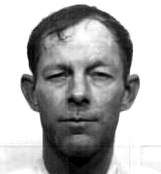Harold Barnard was executed by the State of Texas for a murder committed during a robbery
According to court documents Harold Barnard would attempt to rob a 7-11 convenience store and in the process would shoot and kill sixteen year old Tuan Nguyen
Harold Barnard would be arrested, convicted and sentenced to death
Harold Barnard would be executed by lethal injection on February 2 1994
Harold Barnard Photos

Harold Barnard FAQ
When was Harold Barnard executed
Harold Barnard was executed on February 2 1994
How was Harold Barnard executed
Harold Barnard was executed by lethal injection
Harold Barnard Case
A former carpenter convicted of murdering a Galveston convenience store clerk 14 years ago asked for divine forgiveness before he was given a lethal injection early Wednesday.
Fifty-one-year-old Harold Amos Barnard was executed at 1:27 a.m. EST, less than two hours after the U.S. Supreme Court in Washington rejected Barnard’s appeal and three separate for stays from Barnard.
‘God, please forgive me of my sins. God, Jesus Christ, forgive me of my sin,’ Amos said. ‘Look after my family and help them get out from under the bad medicine people. And bless all good people.’
Barnard then received the injection, gasped five times and died.
Barnard was convicted in 1981 of shooting Tuan Nguyen, 16, with a sawed-off .22 caliber rifle during a robbery of her family’s store.
Police said Barnard and three co-defendants fled in a stolen car after the shooting and were arrested on I-45 north of Galveston. Police found the murder weapon in the car along with a knife and a loaded 12- gauge shotgun.
Barnard’s appeal contended that Barnard was mentally ill and incompetent to be executed under state law. It also raised a question about whether the jury was prohibited from considering any mitigating evidence that may have altered its verdict or Barnard’s sentence.
Testimony showed that Barnard was drunk and high on drugs at the time of the crime, but the trial judge ruled that the jury could consider intoxication as mitigating evidence only if it rose to the level of temporary insanity.
Both of these claims have been rejected by state and federal courts, which moved the case to the Supreme Court.
https://www.upi.com/Archives/1994/02/02/Galveston-killer-executed/6168760165200/









